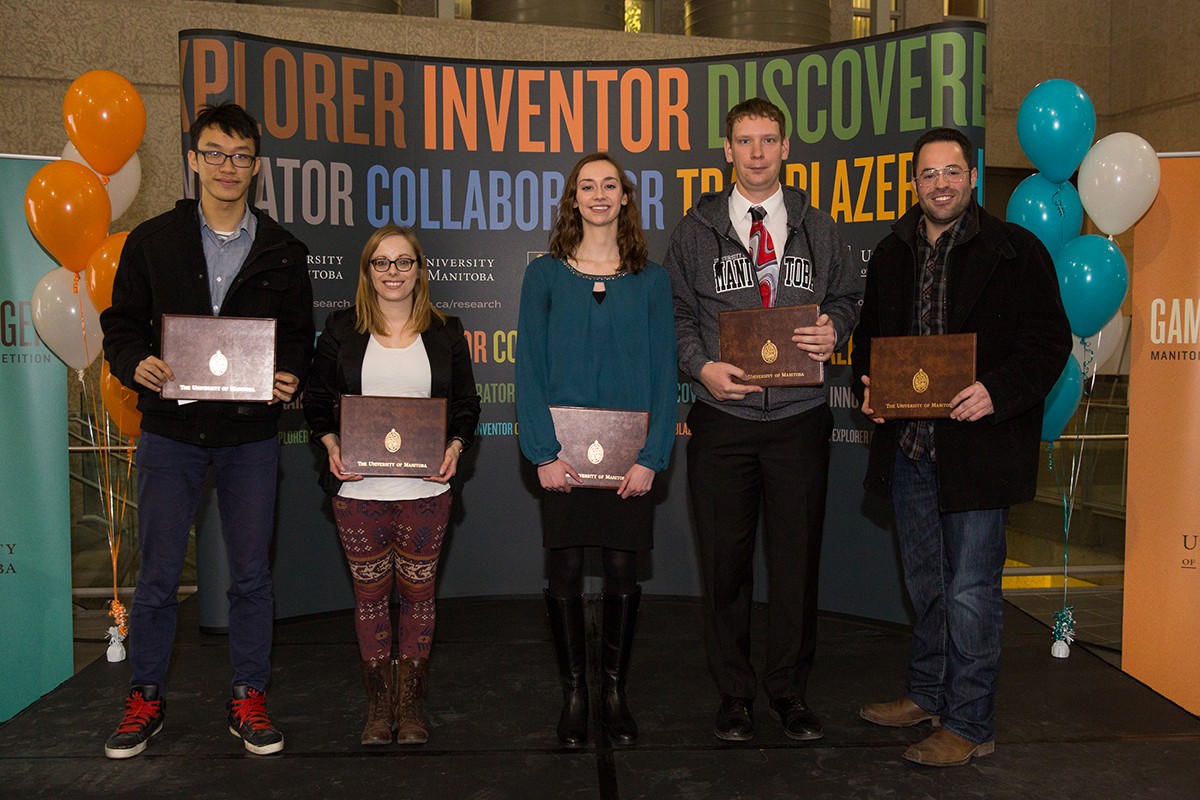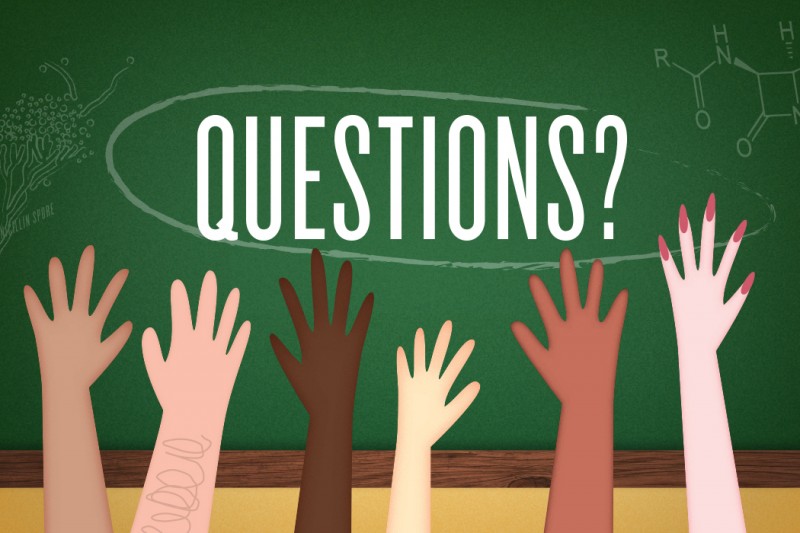
Game Changer: Now the work begins
Houston, we have five problems.
Game Changer, a bold and unique competition developed by the University of Manitoba, is now entering its second phase after the winning five “problems” were announced at an evening event on Nov. 17.
This unique two-phase contest began in September when students from all departments and faculties were encouraged to simply submit an idea – one that identifies practical, real-world challenges and has potential to enact positive change if a solution was found. Seventy-seven problems were submitted, and five have been chosen.
The problems
HEALTH
Technology promotes sedentary lifestyles, which leads to obesity. How can we change this?
Problem proposed by Adam Nepon, Faculty of Graduate Studies.
FOOD
How can food waste be reduced in order to make quality food available for all?
Problem proposed independently by Amy Dytnerski, Faculty of Health Sciences, and Gary Tong, Faculty of Science.
MEDICAL
How can we detect early-onset Alzheimer’s disease before there is irreversible damage?
Problem proposed by Jesslyn Janssen, Faculty of Science.
CLIMATE
How can we reduce CO2 emissions in the transportation of goods?
Problem proposed by Riley Bell, Extended Education.
EDUCATION
How can we encourage new ideas within our system when we test primarily for compliance?
Problem proposed by Ken Oliver, Faculty of Science.

(l-r) Dr. Digvir Jayas, Stuart Henrickson, Gary Tong, Dr. Darren Fast, Amy Dytnerski, Ken Oliver, Jesslyn Janssen, Adam Nepon, President David Barnard (missing: Riley Bell)
Each of the above students received a $500 cash prize for submitting their great questions. But more money is up for grabs as the competition now moves into Phase 2.

Students submitted 77 questions they wanted answers to. Five were chosen. Now students will find answers, and possibly transform our society in the process.
“This feels pretty awesome. I’m pretty excited,” MBA student Adam Nepon said after learning his idea was selected. “I’m not really a scholar: I’m usually not the smartest guy in the room so I don’t win scholarships. So this feels pretty good.”
Nepon has been thinking of a solution to his problem of reducing obesity rates in the age of technology, but admits that it needs more work.
“I need something more impressive than what I have now because this is a university-wide competition and there are lot of bright and creative people here. So I guess I’ll start seeing if some engineering students want to help and we’ll take it from there – I’m not an inventor so I need to surround myself with the right people.”
Any student or post-doctoral fellow can participate in Phase 2, working in cross-faculty teams to develop viable, practical solutions for any of the winning problems.
The top 10 solutions will move to a final round where faculty, industry, and community professionals will mentor and sponsor teams to develop the idea into a viable product or business. The grand-prize winning team will receive $10,000 and six months of professional mentorship to transform their game-changing idea into a reality.
“Our students want to transform the world and it’s rewarding to see how excited and committed they are to using the Game Changer competition as the platform to achieve this,” says Digvir Jayas, Vice-President (Research and International) at the University of Manitoba. “This competition is about challenging our students to think in new ways, from new perspectives, and to work together to find solutions to the biggest problems they can imagine.”
Ideas come in all shapes and sizes, which is why students must work with others from different faculties. This is a key competition rule, says Stuart Henrickson, executive director for entrepreneurship in the Asper School of Business.
“Entrepreneurs are idea people, thinking boldly and seeing opportunities others overlook, but that doesn’t mean they see the whole picture,” he says. “So having students from different faculties work together will complete the picture, so to speak. The University of Manitoba is brimming with the highest-caliber problem-solvers, so I’m eager to see the solutions these teams will create. This is a really exciting time.”
Any team wanting to tackle one of the five problems has until Dec. 11, 2015, to register online and indicate what problem they are planning to solve. Teams then have until Jan. 25, 2016, to submit their solution.
On Feb. 1, 2016, the top solutions will be announced (maximum of 10) and the final event will be held on Feb. 11, 2016, in the Engineering Atrium when the selected teams will present to a panel of judges.
“This is a first for the University of Manitoba,” says Darren Fast, director of U of M’s Technology Transfer Office. “This is exactly the kind of collaboration and big-thinking challenge we need to solve the complex issues we face today.”
Research at the University of Manitoba is partially supported by funding from the Government of Canada Research Support Fund.







Just a note – Extended Education is not a Faculty.
And – best wishes to our Science students!